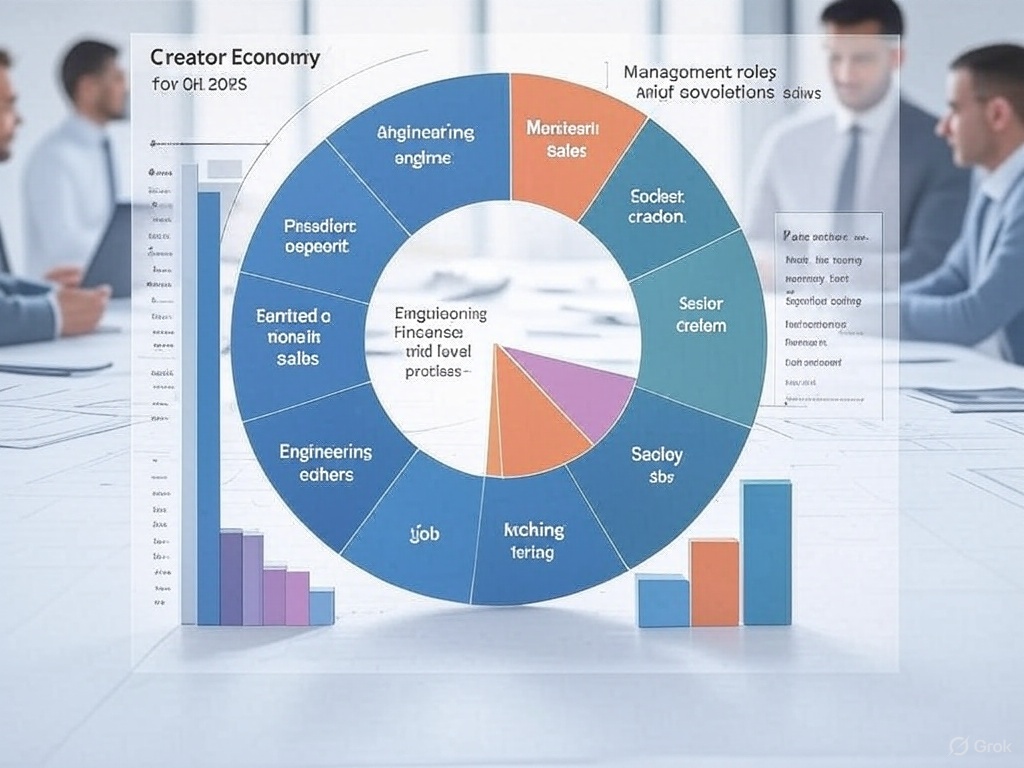The Creator Economy is booming, but it’s not just creators who are driving the industry forward.
A recent infographic by The Information, analyzing over 1,400 job vacancies from 780 companies using data from Greenhouse, Lever, and LinkedIn, reveals the key roles and trends shaping this space in Q1 2025. While creators remain the face of the industry, the backbone of this growing ecosystem is increasingly made up of experienced professionals in management, engineering, marketing, and sales.
 The data highlights a clear preference for seasoned talent. Over half of the open positions in the first quarter were aimed at candidates with senior-level experience, while 45% targeted mid-level professionals. For entry-level hopefuls, however, the market is nearly inaccessible, with only 3% of vacancies catering to beginners.
The data highlights a clear preference for seasoned talent. Over half of the open positions in the first quarter were aimed at candidates with senior-level experience, while 45% targeted mid-level professionals. For entry-level hopefuls, however, the market is nearly inaccessible, with only 3% of vacancies catering to beginners.
This trend underscores the industry’s shift toward maturity, where businesses are prioritizing expertise to scale operations and drive ownership.
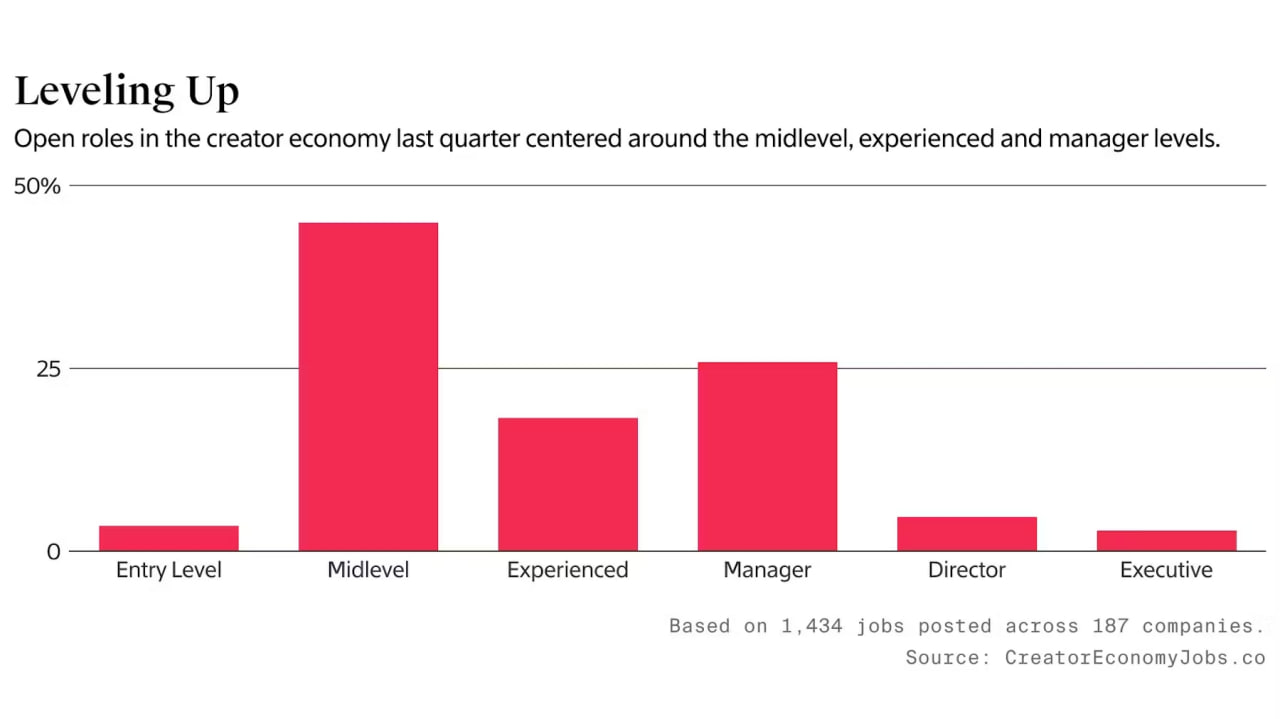 Also read:
Also read:
- From Hollywood Stars to YouTube Creators: How Twilight and IP Changed the Game
- The Creators Guild of America Launches CGA Rider: A Game-Changer for Digital Creators
- TikTok Surpasses Twitch to Become the Second Most-Watched Livestreaming Platform in Q1 2025
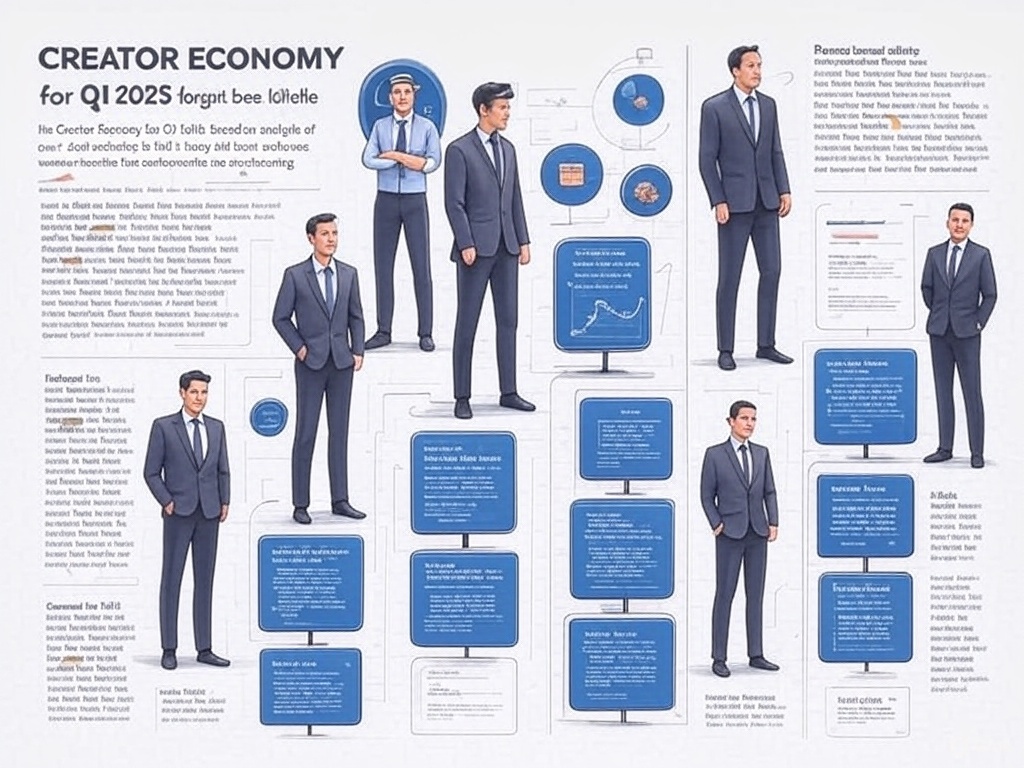 Demand for leadership roles is surging. Director-level positions saw a staggering increase of over 100% in vacancies compared to the previous quarter, while managerial roles grew by 52% and top executive positions rose by 37%.
Demand for leadership roles is surging. Director-level positions saw a staggering increase of over 100% in vacancies compared to the previous quarter, while managerial roles grew by 52% and top executive positions rose by 37%.
This spike reflects the Creator Economy’s evolution from a creator-centric model to a structured business landscape, where strategic oversight and team management are critical for growth.
Engineers top the list of the most sought-after roles, followed closely by marketing and sales professionals. As creator-led businesses scale, the need for technical expertise to build platforms, tools, and infrastructure is evident.
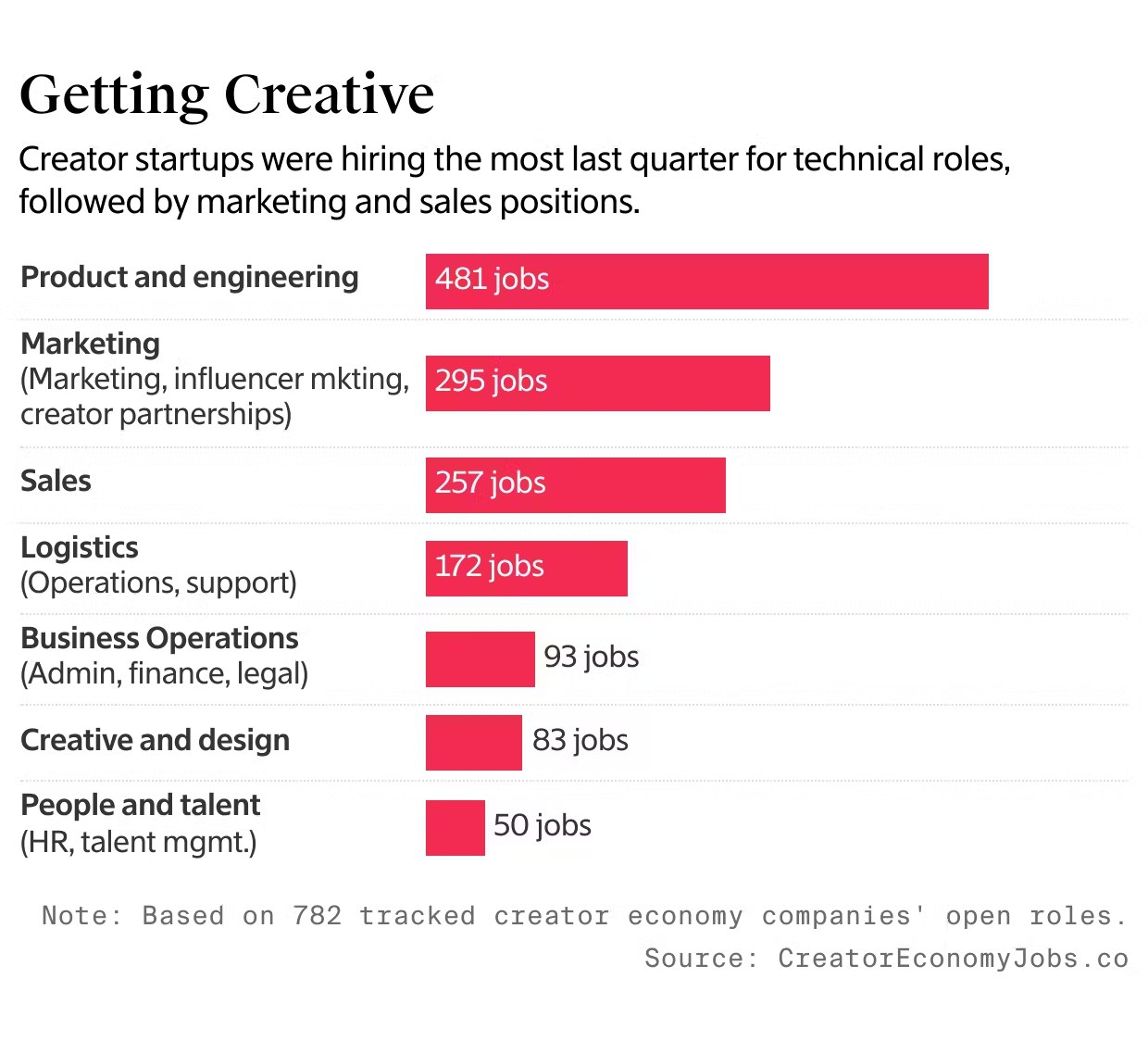 Meanwhile, marketing and sales roles are essential for monetizing content, securing partnerships, and expanding audience reach.
Meanwhile, marketing and sales roles are essential for monetizing content, securing partnerships, and expanding audience reach.
These findings align with the industry’s broader trend toward professionalization, where production companies and startups are focusing on building sustainable, scalable operations.
Interestingly, remote work in the Creator Economy is on the decline. Work-from-home (WFH) vacancies dropped by 22% compared to last year.
This shift isn’t surprising given the nature of the work: client interactions, filming, partner meetings, and production team management often demand in-person collaboration, especially in young businesses establishing processes.
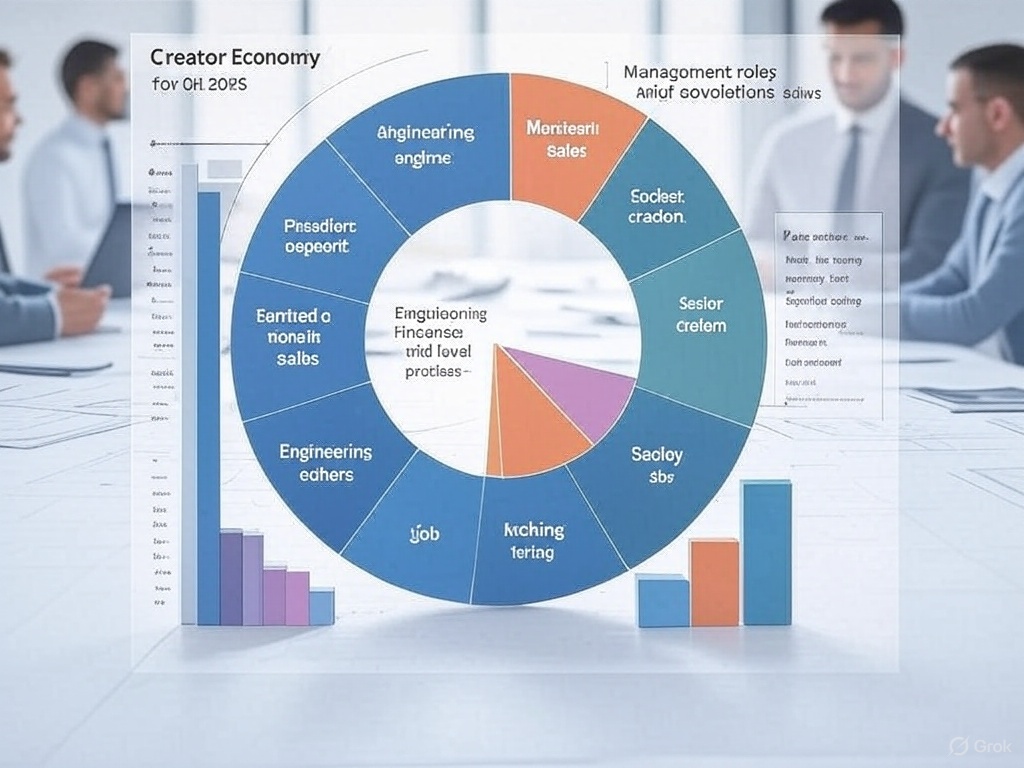 As creator-led production companies grow and prioritize ownership, the need for synchronized, hands-on involvement is becoming more apparent.
As creator-led production companies grow and prioritize ownership, the need for synchronized, hands-on involvement is becoming more apparent.
The Creator Economy is no longer just about the creators—it’s about the teams behind them. From directors steering the vision to engineers building the tech and marketers driving revenue, the industry is calling for a diverse set of professionals to turn creative output into thriving businesses.
As the sector continues to mature, those with the right skills and experience will find themselves at the heart of this cultural and economic shift.

